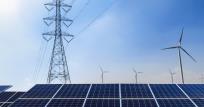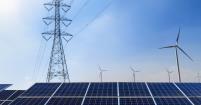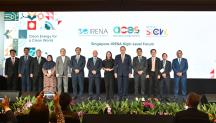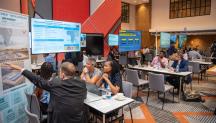

IRENA’s Collaborative Framework to Prepare Countries for High-Shares of Renewables
Newsletter
Ambitious emission reduction strategies are increasingly being built around an energy transformation focused on the deployment of significant shares of renewable energy. To align with UN Sustainable Development Goals and achieve a decarbonisation path in line with the Paris Agreement, more than half of global power should be renewable by 2030.
As countries navigate a positive shift in their energy systems to low-carbon sources, greater cooperation among countries and with different stakeholders has become more important. In this context, IRENA's Collaborative Framework on "Enhancing Dialogue on the Integration of Higher Shares of Renewables in Energy Systems" met for the second time to further promote an exchange of knowledge and experiences.
The meeting, moderated by H.E. Ambassador Alvaro Ceriani, Uruguay's Permanent Representative to IRENA, highlighted a number of challenges countries face as they scale up the deployment of renewables, including the provision of supply reliability, grid stability and market design, underlining the need for international collaboration.
Delivering his opening remarks, IRENA Director-General Francesco La Camera said: "The energy transformation is a reality. Yet, operating energy systems with high shares of renewables poses different challenges than those arising in centralised energy systems based on fossil fuels."
"This Collaborative Framework is a strong evidence of the commitment to the energy transition and recognition of the importance of enhancing peer-to-peer collaboration and exchanging national experiences, challenges, and respective solutions," he added.
The Framework first met in July, after strong interest from IRENA's Membership for the Secretariat to create and coordinate a common platform to promote dialogue and practical cooperation between countries with high shares of renewable energy, or aspiring to achieve high-shares of renewables in their energy mix.
The Collaborative Framework, which covers electricity markets and regulation, energy system planning, energy system operation, cross-sectoral strategies, cross border interconnections, and systemic innovation, will focus on three distinct areas during the pilot-phase:
- Reinforced energy system planning through effective use of long-term energy scenarios;
- Optimised operation of energy systems with high penetration of variable renewable energy in the energy systems;
- Cross-border interconnections to promote cross-border trade of renewable electricity.
In response to interest from IRENA’s Membership to open the Framework to the participation of additional stakeholders, representatives from industry associations and regional organisations were invited by IRENA to the second meeting. These included the Latin American Energy Organization (OLADE), the ASEAN Centre for Energy (ACE), the Global Bioenergy Partnership (GBEP), the Global Solar Council (GSC), the Global Wind Energy Council (GWEC), the International Geothermal Association (IGA), the International Hydropower Association (IHA) and the European Renewable Energies Federation (EREF), all of whom put forward their ideas for the implementation of the Framework.
IRENA Members and States in Accession listened in as participants shared experiences about adapting current energy systems and markets to high shares of renewable energy. “We have to adapt,” said Mr. Alfonso Blanco Bonilla, Executive Secretary of OLADE, stressing on the need to enhance transmission and distribution systems, improve policies, and resolve infrastructure constraints in Latin America and the Caribbean; a region known for having high penetration of renewable energy.
Embodying the spirit of collaboration, Dr. Marit Brommer, Executive Director of the IGA said: “We are here to support the Global Geothermal Alliance,” IRENA and the Collaborative Framework. “You count on the IGA to keep on delivering technical guidelines and industry support with the competence and passion that we need to push the energy transformation forward.”
During interventions from IRENA Members, Mr. Giampaolo Cutillo, Head of Office for Energy, Environment and Sustainability at the Ministry of Foreign Affairs and International Cooperation of Italy, highlighted the importance of innovative solutions to the integration of high shares of renewables. “System integration, digital grids, distributed generation, and demand-side management are the most important challenges for the future,” said Mr. Cutillo. “Without them, installed capacity will not reach its full potential.”
Members also underscored the importance of regional interconnections to the integration of high shares of renewable energy. “We believe that interconnecting bordering countries is an important step,” said Mr. Ryan Cobb, Energy Director at the Ministry of Public Service, Energy and Public Utilities in Belize, citing the partnership between his country and Mexico as a successful example. Mr. Cobb also noted the importance of including utilities and system operators to future discussions.
IRENA Members agreed on modalities for future meetings under the Framework, including the selection of Canada and Uruguay as co-facilitators.




